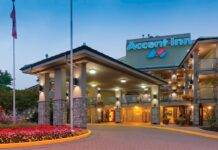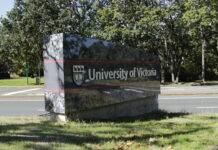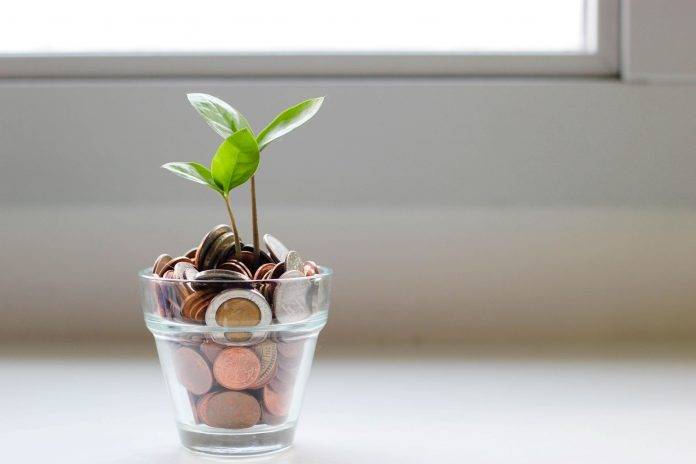COVID-19 has shaken the foundations of our society, proven the interconnectedness of our planet, people and the economy, and supported a profound shift in purchasing.
It has also accelerated the rise of economies that integrate business value and community well-being through social enterprise, and that promote the importance of humanistic, sustainable strategies for growth.
On Earth Day 2021 we look beyond COVID-19 toward a greener, more sustainable future that supports these innovative social enterprises as they pivot our economic system from linear to circular, providing local jobs and sparking action in our communities.
Scale Collaborative, the Synergy Foundation and Community Micro Lending are three examples of leadership in driving thriving, sustainable, connected and financially resilient social impact sectors and communities.
Synergy Foundation & Community Micro Lending
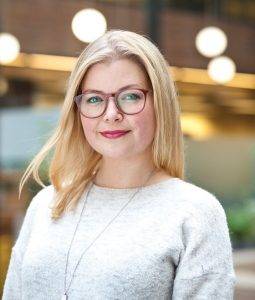
Synergy Foundation is a Victoria-based non-profit with a foundational concern of activating change and steering the economy in a more regenerative, green direction through programs and idea incubation. They have spearheaded Project Zero and Project Zero Incubator with the goal of supporting innovative businesses that would drive a circular economy forward, with the end goal of establishing a thriving circular economy on Vancouver Island by 2040.
The incubator program assists businesses with plans, operation fundamentals, entrepreneurial skills, mentorship, and pitch development. It currently consists of 20 entrepreneurs keen to develop their sustainable businesses over the eight month program.
Community Micro Lending (CML) is another local non-profit that helps people start or grow their small business by connecting them with local lenders in the community. CML brokers small loans for business start-ups, expansion and training through micro-loan programs. All funds are borrowed from and invested in the community and all lenders are people based in B.C. who want to make a patient investment that supports their community with a return of two percent.
Synergy Foundation and Community Micro Lending (CML), along with a group of key lenders, have partnered to create the Project Zero Circular Economy Loan Fund to help entrepreneurs graduating from Synergy’s Project Zero Incubator Program acquire financing in the early stages of starting a business – which can be quite challenging, especially for small businesses with highly innovative ideas needed in a circular economy.
The loan can be used towards a variety of start-up costs including prototyping, skill development, equipment, lease deposits, and more. For many it is the first step to building readiness for future loans and investment. The loan comes with a three percent interest rate.
The community is encouraged to contribute as lenders eligible to be repaid, or as a donors. Donated funds will circulate for years to come, with repaid funds relent to future loan fund borrowers.
Scale Collaborative’s Initiatives
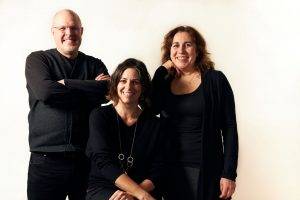
Scale works with impact-driven organizations, such as non profits, co-ops and social enterprises, to diversify revenue streams, develop enterprising approaches and scale what works. The team helps organizations (over 100 in 2020 alone) transform through coaching, consulting, capacity building and supportive ecosystem initiatives.
“With the complexities of challenges that Vancouver Island (and most other regions) face, utilizing your purchasing dollars to get what you need and at the same time, bring your community value, is huge. We are seeing consumers’ buying patterns continue to shift because increasingly, people want their purchasing dollars supporting community well-being,” says Kristi Rivait, Director of Partnerships and Programs.
Scale’s expertise on social enterprise management and education have made a difference to their community partners.
Lindsey Boyle, co-founder of the Sandown Center for Regenerative Agriculture, says their participation in Scale’s Bootcamp and Connect Money Impact events helped them grow from “an unfunded concept to create the lean canvas required to pitch our social enterprise to Vancity and other funders. As a result,” she says, “we received funding from Vancity (in the form of a grant) to progress to write a full business plan and full proposal within five months.”
Scale is launching two initiatives to drive social enterprise.
The Thrive Impact Fund (TIF) provides an opportunity for Vancouver Island investors to invest in impactful, close-to-home enterprises that advance social, environmental and cultural goals.
The Island faces some significant challenges with regards to housing, food security, climate change, environmental challenges, equity, poverty and so on. There are enterprises working to address these issues, with examples all across the Island. Nevertheless, these entrepreneurs struggle to access patient capital to help them grow and succeed.
The $10 million TIF will address that gap, combining flexible financing alongside support to succeed, convening a thoughtful group of investors that want to share in that success and invest in solutions that make our communities more resilient, more equitable and more able to thrive in our changing world.
The Business Legacies Initiative is a Vancouver Island initiative will assist non profits and charities to acquire existing businesses. It was created in response to the knowledge that over the next decade a wave of business owners will want to transition out of their business. Non-profits and charities are increasingly operating social enterprises to achieve multiple outcomes related to their missions and mandates.
“Scale sees an opportunity to support the transition of existing businesses into community ownership, both maintaining the business activity in a community as well as meeting social enterprise goals,” says Rivait.
The Business Legacies Initiative is currently conducting research, developing toolkits and resources, hosting workshops and providing transition/acquisition support. In the past few months, three existing businesses have transitioned to community ownership.
As Vancouver Island’s reputation as a hub for innovation and environmental stewardship continues to grow, expect to see the concept of social enterprise become more commonplace among our local business community.
That’s a win-win all round.
More:



